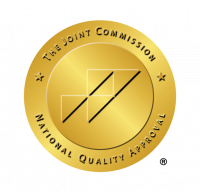Holidays bring up a lot of mixed feelings. Most of us just want to have fun, visit, and be accepted at family gatherings. But for many, there are also certain minefields we dread having to navigate this time of year. One of these is worrying about how to handle family members who drink too much at holiday gatherings. This can be especially tough if you’re in recovery yourself.
While you can’t control your loved one’s behaviors around drinking, you can set your own boundaries. And you may be able to make the environment less encouraging of alcohol consumption. If you feel your family drinks too much, here are some tips on how to deal with drunk family members and manage your own sobriety during the holidays.

Schedule a private call with a Ria Health team member and we can help you get started.
How to Manage Your Sobriety When Your Family is Drinking
1. Have fun, nonalcoholic options

If you’re the host, then you can set the expectations. Consider a dry gathering, or limit the alcohol served. Include nonalcoholic options, like these nonalcoholic winter drink recipes.
And if you’re a guest, bring nonalcoholic options for yourself. Staying sober when everyone else is holiday drinking doesn’t mean you have to sullenly sip water all night. Make it fun with a favorite mocktail, soda, or juice–something you’ll enjoy drinking. Plus, having a drink in hand means family members are less likely to push alcoholic beverages on you.
2. Communicate to your family that you’re not drinking
Sometimes the trickiest part of not drinking is having to field dozens of questions about why. It can help to tell your family beforehand that you won’t be joining in the holiday drinking. This way, they have time to process and understand your decision while sober themselves.
And it’s a good idea to have a plan for how you’ll answer questions, either before or during the festivities. It’s up to you how much you share and how you share it. You can go with sincere (“I’m doing this for my health”), joking (“I’ve already reached my lifetime quota”), or an excuse you feel comfortable with (“I’m driving,” or, “I have to be up early”). A plan will help you feel more comfortable and more resistant to peer pressure.
3. Leave early if it helps
Another option is to alter your participation in the event. If you are concerned about dealing with drunk family members, plan to leave early. Let your host know that you won’t be staying late this year or will need to leave by 8 p.m.
Or, if uncomfortable drinking and inappropriate behaviors begin, politely excuse yourself. Say that you’re grateful to see everyone, but need to get going. If this feels awkward for you, claim additional plans or an early morning the next day. Remember that there’s nothing “rude” about putting your health and sobriety first.
4. Keep your support system in the loop
When you’re up against a potentially triggering situation, especially in early recovery, it’s important to call on your support system. Do you have supportive family members you can lean on at the event? If not, could you bring a supportive friend or partner with you?
If you’ll have to go it alone, reach out to sober friends or a sponsor to talk about your concerns. Arrange to talk to them before and after your holiday event, or ask them to call you halfway through and check in. If you’re struggling, you can make your excuses and leave.
5. Skip out if you need to
What if you feel that celebrating the holidays with your family will hurt your sobriety, even with these tips? It is always okay to turn down an invitation. Family members may be upset, but so will you if the event is harmful to you. And, you’re likely not the only one in the family who has misgivings. Setting this limit may even encourage others to follow suit.
If you still want to celebrate, ask to get together with some supportive family members for a smaller gathering later in the week. Drop off a gift, and let loved ones know you’re thinking of them.
How to Deal with Drunk Family Members During the Holidays
Family members drinking and the interactions that come from it can be their own source of stress during holiday gatherings. If the behaviors that ensue from alcohol consumption have created negativity in your family gatherings in the past or have created triggering situations for you, here are some tips for this year.
1. Introduce New Traditions

There are lots of ways to have fun that don’t involve drinking. If holiday drinking is a major family tradition, try introducing some new ones, like these alcohol-free holiday activities.
Think back to childhood—what are some of your favorite ways of getting into the spirit of the season? Watch a holiday movie or a family slideshow, play some favorite games, tour the neighborhood and look at Christmas lights, or bake some holiday cookies together. Having something fun other than drinking to do at holiday gatherings may cut down on your family’s alcohol consumption.
2. Stop playing the family games
Sometimes people struggling with alcohol abuse get caught up in family roles that aren’t helpful. Maybe Uncle Joe tends to get drunk and belligerent, and Aunt Miley always asks him to stop. Then Mom cuts in and tells Miley to let him be.
Perhaps your two siblings always argue about politics or religion once they’ve had a couple of drinks, and try to bring you into it. Be prepared to be triggered, and decide not to participate this year. It’s unlikely anyone’s viewpoint is going to change in one day, so decline to get involved.
It’s your choice to participate in the drama or not. Rather than acting in your typical role, stick to your own needs, feelings, and boundaries.
This may mean going to the other room, leaving early, or joking that you aren’t getting involved in politics. Explore what your boundaries are, and what decision you will feel best about later.
3. Know how they’re getting home
If you’re the host, things can get trickier when someone in the family drinks too much. Don’t let your loved one drive drunk, but state that no more alcohol will be served. And whether you’re hosting or not, offer to drive them home, ask someone else to do it, or call them a rideshare. We can’t control how much our loved ones drink, but we can do our best to help them get home safely.
4. Be kind and inclusive
Some people imagine that standing up to behaviors that make you uncomfortable will involve yelling and tears. This may still be the case, but it doesn’t always have to be. Let your family members know that you care about them and that you’re concerned.
Also, consider that some people drink more at family events because they’re uncomfortable. They may feel judged, left out, or criticized by others. If they aren’t drinking yet, or have just started, you might make a point to engage with that person. You can even reach out ahead of time and let them know you’re looking forward to visiting.
5. Avoid rescuing or managing
There’s a difference between setting your boundaries, being kind, or changing your behaviors, versus controlling another. One is staying within your zone, while the other is stepping in another’s.
Take a look at these rephrases, and see if you can notice the difference:
“Your drinking is getting really out of control,” versus, “I’m uncomfortable around heavy drinking these days, especially at family events.”
“I think we should quit drinking this year so we don’t make Mom upset,” versus, “I’ve decided to not drink at family events anymore. It makes Mom upset.”
“I’m sick of arguing with my drunk sister,” versus, “I feel stressed when we argue at these gatherings, and it usually involves drinking. I don’t feel safe being there if there will be alcohol.”
Again, remember that it’s always okay to leave (or simply skip out) if your family’s behavior is harmful to you–whether it’s emotionally draining, hard on your sobriety, or both.
6. Offer help if it’s requested
If your family member wants to quit drinking and needs help, they’ll ask for it when they’re ready.
If you have any personal experience or know of someone else who has gotten better, then feel free to share successes at that point. Avoid being judgmental or pushy, but let them know you support anything that helps them feel better. If you’re struggling to stick with your drinking limits during the holidays, or you have a relative who is ready to get help for a drinking problem, there are now online options. Ria Health offers coaching, support groups, medications, and more—all through a convenient smartphone app. Reach out now, for a happier holiday, and a healthier year.
Read More: 6 Tips for Staying Sober Through the Holidays
This article was originally written by Jennie Lannette, LCSW. It was updated in December 2023 by Ashley Cullins.




